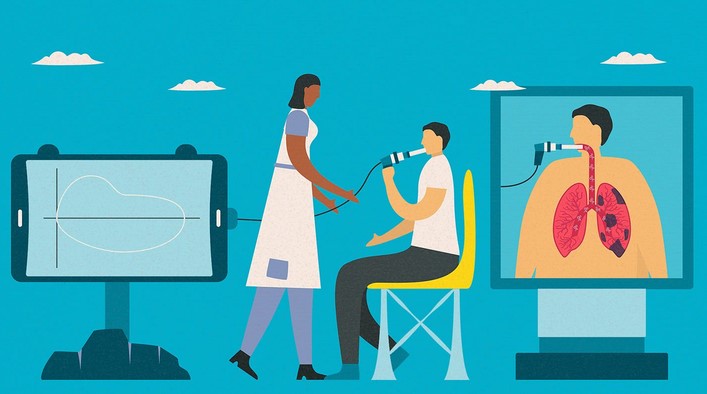
Stage 4 COPD, also known as end-stage chronic obstructive pulmonary disease, is the most severe stage of this lung disease. It is characterized by advanced chronic bronchitis, which involves persistent, long-term inflammation of the bronchial tubes. Symptoms to expect at this stage include severe shortness of breath even when at rest, frequent respiratory infections, significant weight loss, swelling in the ankles, feet or legs, chronic fatigue, and a bluish or grayish color on the lips or fingernails due to low oxygen levels. These symptoms can significantly impact a person’s quality of life and daily activities, making it crucial to understand and manage them effectively.
Understanding Stage 4 COPD Symptoms: A Comprehensive Guide to Advanced Chronic Bronchitis
Chronic Obstructive Pulmonary Disease (COPD) is a progressive lung disease that makes it difficult to breathe. It is characterized by the inflammation of the bronchial tubes, which carry air to and from the lungs. As the disease progresses, the inflammation worsens, leading to a significant reduction in the airflow to and from the lungs. This article aims to provide a comprehensive guide to understanding the symptoms of Stage 4 COPD, also known as advanced chronic bronchitis.
In the early stages of COPD, symptoms may be mild and often overlooked. However, as the disease progresses to Stage 4, the symptoms become more severe and debilitating. One of the most common symptoms at this stage is chronic coughing. This is not just an occasional cough, but a persistent one that produces large amounts of mucus. This symptom is often referred to as a “smoker’s cough,” as it is commonly seen in individuals who have a history of smoking.
Another common symptom of Stage 4 COPD is shortness of breath. This is not just a feeling of being winded after physical exertion, but a constant struggle to breathe even while at rest. This symptom can be particularly distressing, as it can make even the simplest daily activities, such as walking or dressing, extremely difficult.
In addition to chronic coughing and shortness of breath, individuals with Stage 4 COPD may also experience frequent respiratory infections. This is because the damaged lungs are less able to fight off infections, making individuals more susceptible to conditions such as pneumonia.
Furthermore, individuals with advanced chronic bronchitis may also experience fatigue. This is due to the fact that the body has to work harder to get the oxygen it needs, which can be exhausting. This fatigue can be so severe that it interferes with daily activities and reduces the quality of life.
Weight loss is another symptom that may be experienced in Stage 4 COPD. This is often due to a combination of factors, including the increased energy expenditure from the effort to breathe, decreased appetite due to difficulty breathing while eating, and the body’s increased metabolic rate as it fights the disease.
Lastly, individuals with Stage 4 COPD may also experience swelling in the ankles, feet, or legs. This is due to the fact that the disease can cause the heart to work harder, leading to fluid buildup in the lower extremities, a condition known as peripheral edema.
In conclusion, Stage 4 COPD, or advanced chronic bronchitis, is characterized by severe symptoms that can significantly impact an individual’s quality of life. These symptoms include chronic coughing, shortness of breath, frequent respiratory infections, fatigue, weight loss, and swelling in the lower extremities. Understanding these symptoms is crucial for managing the disease and improving the quality of life for those affected. It is important to consult with a healthcare provider for a proper diagnosis and treatment plan if you or a loved one are experiencing these symptoms.In conclusion, Stage 4 COPD, also known as end-stage COPD, is the most severe stage of this disease and is characterized by severe shortness of breath, frequent flare-ups, and a significantly reduced quality of life. Symptoms include chronic cough, increased mucus production, frequent respiratory infections, fatigue, weight loss, and swelling in ankles, feet, or legs due to heart complications. The symptoms can be debilitating and greatly affect a person’s ability to perform daily activities. It’s crucial for patients to work closely with their healthcare providers to manage these symptoms and improve their quality of life.